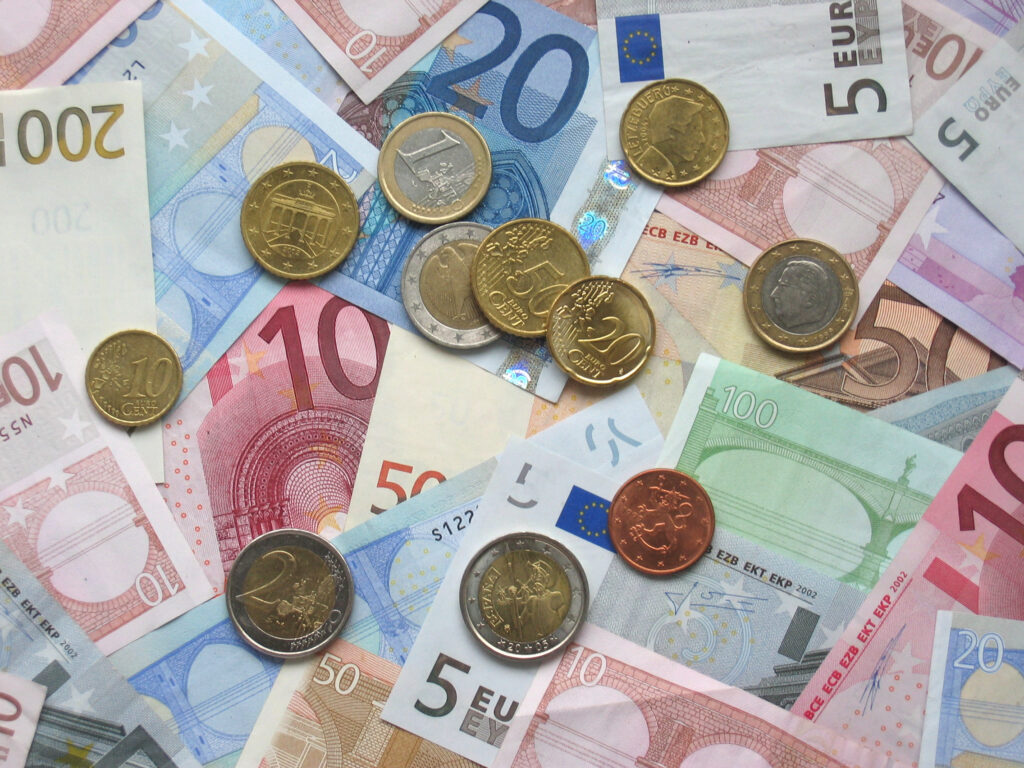Does your app have customers in Europe? If so, listen up!

Startups and small businesses who sell digital goods in Europe are gearing up for a major change coming in the new year. Despite outcry from these business owners, new EU VAT, or value-added tax, regulations are set to go into effect on January 1st, 2015. In an effort to prevent major web-based companies from avoiding tax-related red-tape by directing most EU sales through notoriously low-VAT countries, the new regulations shift taxation of digital goods from the location of the company to the location of the customer.
That’s right; these changes apply only to digital goods, including mobile apps. Unfortunately, while digital businesses have recently been celebrated and encouraged, they will now carry the weight (and consequences) of these new regulations.
So, how exactly will the new VAT regulations work?
Businesses that sell digital goods will be required to register for VAT in the countries where their products are purchased by customers. However, the new requirements don’t end there. They will also need to record the exact location of their product sales and keep those records on file for 10 years. Considering that purchases of digital goods often do not require a physical address from customers, this will quickly change the way these businesses operate. Ouch.
Although there is a work-around to prevent companies from having to register for VAT in 28 separate countries, it comes with a cost. With the creation of VAT Mini One Stop Shop (MOSS), businesses can register for VAT in the UK and then have the money distributed to the other necessary countries. However, registering with the VATMOSS forces businesses out of VAT exemptions, placing owners in a potentially worse situation.
What do the new VAT regulations mean for app developers?
App developers selling goods via app stores may need to take additional cautions. Some platforms (such as the Apple App Store and Google Play) will assume VAT liability, so developers won’t need to calculate and send VAT separately. In a support article on the Google Play Developer Help site, the following example is given:
On the contrary, liability will often not be assumed for in-app purchases. Developers should be aware that if they process an in-app purchase themselves, they will need to be registered and file for VAT in the country where the in-app purchase was made. Developers using the platform’s in-app purchase solution, however, will not need to calculate and send VAT.
So what does this mean for a developer? Most app platforms like the App Store and Google Play offer a 70/30 revenue split with app developers who distribute via their platforms.
If an app is a paid app in the stores, there’s relatively little decision making to be done; a developer can adjust prices based on the VAT in each country in order to maintain current revenues. The transaction between a developer and an app platform is considered a business-to-business transaction and is subject to the existing VAT rules.
If an app offers in-app purchases, a developer must consider whether allowing a platform to handle the micro-transactions (thus sacrificing the 30% revenue share) outweighs the time and costs necessary to collect and store sales information (including location) and VAT payments. This can be quite a large undertaking for an indie developer or small development studio.
App developers who make their money from paid apps or in-app payments sold through the app stores will effectively be treated as wholesalers because they do not sell direct to consumers. It will now be the market places’ responsibility to pay the VAT on app sales, and they won’t be able to push this added cost back onto the developers through fees or charges.
– VAT on Apps is Changing: What Do I Need to Do? by Pollen VC
Check out Pollen VC’s seminar How to Prepare for Changes to VAT on Mobile Apps & Games.
How will VAT be enforced?
While the requirements may be at least relatively clear, questions about enforcement remain. Enforcement disparities will likely occur, depending on the country in question, but an even more curious situation is sure to arise.
“Things get tougher if the person buying something is actually moving. As City AM recently pointed out, a French person traveling from London to Paris by train, having passed through the Channel Tunnel, could purchase an online subscription, connecting to the French mobile network, with a French IP address, and using a French credit card, but it would be correct for VAT purposes to show this as a UK customer.” – Mike Butcher of TechCrunch
As the connected world continues to evolve, consumers are making more and more purchases on-the-go, blurring the VAT lines, and leaving businesses open to violations and fines. If 63% of developers aren’t even aware of the changes, how will they be familiar with the nuances of regulation enforcement?
What concerns do you have about the new EU VAT regulations? How will this change impact your business and app revenue?
Posted by:
Director of Developer Relations








Hi,
Does this impact only the EU? Right now I’m in Mexico but I have a rented server in a german data center, do I have to pay VAT now? Right now we don’t pay the VAT because we’re in Mexico, so we only get charged for the actual product price.
Thanks for commenting, Raul. Upon further research, it seems that this issue will impact you. EU countries are developing ‘mini one-stop-shop’ (MOSS) schemes for VAT reporting which allow a business to register once in Europe for all countries VAT reporting. The UK MOSS, for example, has two varieties, one for UK businesses, one for businesses outside of the EU. The arrangements are different for each major shop, so the best recommendation would be to check with the German shop.
From the European Taxation and Customs Union:"Non-EU firms supplying electronic services to consumers in the EU, can make use of a simplified procedure which allows them only to register for VAT in 1 EU country, regardless of how many other EU countries they are supplying."
This guide may be useful: http://ec.europa.eu/taxationcustoms/resources/documents/taxation/vat/howvatworks/telecom/one-stop-shop-guidelinesen.pdf
I see your point, but I don’t really understand in fact how it could be a problem for the developers. I mean if the VAT is things are done by Google or Apple, then it should be same as before for developers normally. I’m maybe really naive to ask it (but naive questions are often the most interesting for the majority). In fact it’s even more simple as they don’t have to do it themselves?
Thank you for commenting, Tsoda. You are right that if Google and Apple assume VAT, the process becomes very simple for developers. If you sell your app in the store (as a paid app), you may want to adjust the prices across various app stores to keep your revenues the same.
The trick, however, comes when you offer in-app purchases and use a third-party solution to facilitate this. If your purchases are not handled by Google or Apple, then you are required to report VAT yourself.
Hi there, we also wrote a blog on this topic a few months back:
http://www.taxamo.com/app-stores-eu-vat/
Thanks for your comment, and yes! I came across your post while researching for this. I’d love to learn more about Taxamo. Would you mind sending an email to mike@appalliance.org?
Hi Mike, I commend you for covering the complexity of the VAT rules, and there is a lot more to it than what can be treated in a typical blog. I have written the treatise on these VAT rules, in fact they apply to offshore sellers of digital downloads to EU consumers since 2003. 2015 was just an upgrade of the compliance rules for offshore sellers, offshore sellers, wherever located, have been liable for EU VAT on their sales to the EU since July 1, 2003. See my book on amazon.com: http://www.amazon.com/dp/0988688514/ref=wlitdpopCnSttl?_encoding=UTF8&colid=2FGV35WLEQI6Z&coliid=I1RJJ1PTLN0XRORick Minor
Hey Rick – Thanks for reading! It’s certainly a complicated issue.